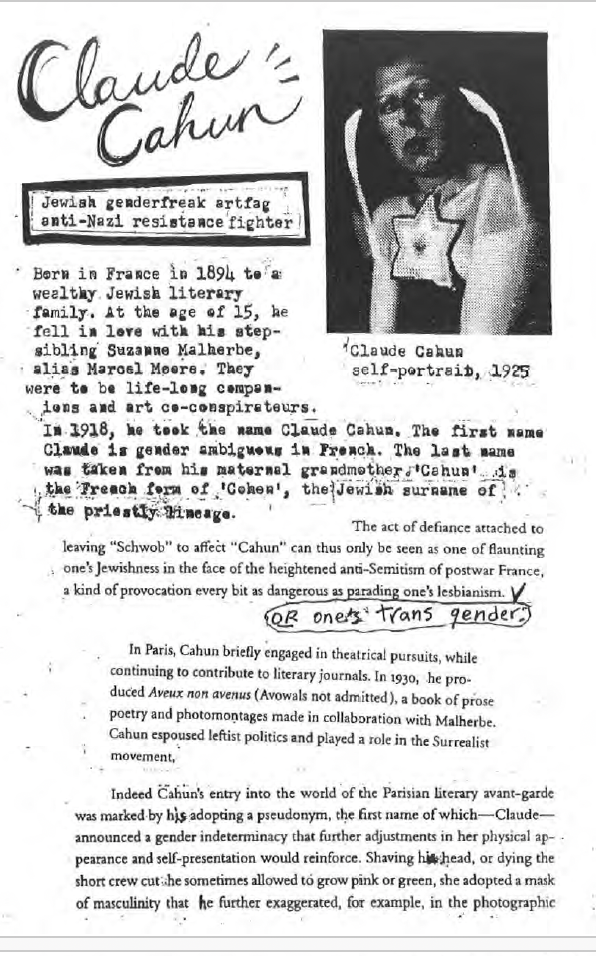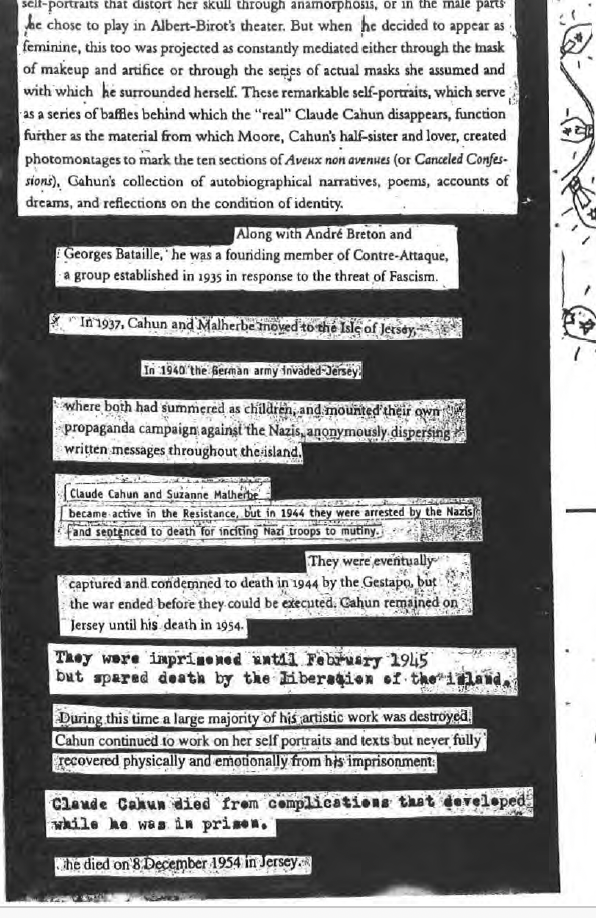Untangling Korach
Sometimes the only way to get clarity is by trying to peel back the layers to see how close we might get to the beginning.

This is Life as a Sacred Text 🌱, an everybody-celebrating, justice-centered voyage into ancient stories that can illuminate our own lives. It‘s run on a nonprofit, so it’s 100% NAZI FREE. More about the project here, and to subscribe, go here:
As a longtime veteran of Jewish communal professional life, I have a lot of Feelings about the Korach story.
I've been in too many spaces where this quintessential tale of challenging authority and getting the divine ZAP ⚡ is evoked all-too-smugly– those rebels who dared question the status quo! And God showed them, allrighty. It is a political story about power, that is used politically, in ways that are about power.
Which Jews are the traitorous Korach, of course, depends on who's doing the talking.
Which is why this is one of those times when bringing the historical lens is especially important.
We are dealing with a text– I mean, the whole Bible, really– that's been used in so many ways, for so many people's agendas. Sometimes the only way to get clarity is by trying to peel back the layers to see how close we might get to understanding what was really going on back in the beginning.
Whose power and authority were we talking about originally, anyway? And why?
So first off– before we even get into the story– it's important to note that according to Biblical Criticism– basically, looking at the historical layers of the Bible– it's likely that this was really two stories woven together.
One story has this whole business with Dathan and Abiram &tc, "descendants of Reuben," complaining that they've been dragged into the wilderness not only to die, and no fair that the Levites' status is superior to that of everybody else. The earth swallows them up.
There's also a story in which Korach and 250 chieftains go to Moses and Aaron, kvetching that all Israelites are holy, and thus at least all the Levites– if not all of everyone– should have the status of priests, not just the descendants of Aaron. There's a trick with ritual fire pans– basically, if God thinks you're legit for this sacred service, everything will be fiiiine. If not, we might pull a leeetle bit of a strange fire-type ZAP on you.
So these stories are interwoven, like the typesetting on a 'zine.


Two pages from TimTum: A Trans Jew Zine, the classic piece published by Micah Bazant in 1999. I still have an original copy on my bookshelf somewhere. But yeah, sometimes I picture the Torah's editing process when the redactor (uh, editor, compiler) is trying to reconcile or add stories from disparate sources looking a little like this.
Anyway, with all that framing upfront, should we look at the story itself for a moment? Here's an abridged version of Numbers 16 and a bit of 17:
Now Korah, son of Izhar son of Kohath son of Levi, took himself, along with Dathan and Abiram sons of Eliav, and On son of Peleth—descendants of Reuben– to rise up against Moses, together with certain other Israelites, two hundred and fifty of them: chieftains of the community, chosen in the assembly, men of repute. They combined against Moses and Aaron and said to them, “You have gone too far! For all the community are holy, all of them, and God is in their midst. Why then do you raise yourselves above God's congregation?”...
Moses said.. to Korah, “Hear me, sons of Levi, Is it not enough for you that the God of Israel has set you apart from the community of Israel and given you direct access, to perform the duties of God's Tabernacle and to minister to the community and serve them? Now that [God] has advanced you and all your fellow Levites with you, do you seek the priesthood too?..."
Moses sent for Dathan and Abiram, sons of Eliab; but they said, “We will not come! Is it not enough that you brought us from a land flowing with milk and honey to have us die in the wilderness, that you would also lord it over us? ...
And Moses said to Korah, “Tomorrow, you and all your company appear before God, you and they and Aaron. Each of you take your fire pan and lay incense on it, and each of you bring that fire pan before God, two hundred and fifty fire pans; you and Aaron also [bring] your fire pans.”.. Korah gathered the whole community against them at the entrance of the Tent of Meeting...Then the Presence of God appeared to the whole community,... saying,
“Stand back from this community that I may annihilate them in an instant!”...
“Speak to the community and say: Withdraw from about the abodes of Korah, Dathan, and Abiram.”
Moses rose and went to Dathan and Abiram, the elders of Israel following him. He addressed the community, saying, “Move away from the tents of these wicked men and touch nothing that belongs to them, lest you be wiped out for all their sins.”...
Scarcely had he finished speaking all these words when the ground under them burst asunder, and the earth opened its mouth and swallowed them up with their households, all Korah’s people and all their possessions. They went down alive into Sheol with all that belonged to them; the earth closed over them and they vanished from the midst of the congregation....
And a fire went forth from God and consumed the two hundred and fifty men offering the incense. God spoke to Moses, saying:
Order Eleazar son of Aaron the priest to remove the fire pans—for they have become sacred—from among the charred remains; and scatter the coals abroad.
[Remove] the fire pans of those who have sinned at the cost of their lives, and let them be made into hammered sheets as plating for the altar—for once they have been used for offering to GOD, they have become sacred—and let them serve as a warning to the people of Israel.... (Numbers 16:1-17:3, excerpted)
You can kinda see it, ya? How there might be two stories interwoven? Two different kinds of complaints, two different deaths for rabble-rousers.
This is a not-infrequent Biblical Criticism starting point – Gosh, God seems to create humankind both in Genesis 1:27 and Genesis 2:7 and 2:21. (1) Or golly, there sure seem to be two flood narratives, if you even just track the name of the divine and whether we seem to have Project Manager God or Emo God driving the story....
So what's going on here?
Well, let's take this thread by thread.
First:
Dathan and Abiram sons of Eliab, and On son of Peleth—descendants of Reuben.... rise up against Moses... Is it not enough that you brought us from a land flowing with milk and honey to have us die in the wilderness, that you would also lord it over us? ...
Abraham ben Meir Ibn Ezra (12th c. Spain) on Numbers 16:1 says:
“And Korah took” - This matter that was in the wilderness of Sinai, when the firstborns were replaced ... Datan and Aviram conspired because the firstborn privilege was removed from Reuven their father ...
Which is also what some scholars think, kinda. That is to say– this subplot may have been about the loss of power of the tribe of Reuven. (2) Which likely had some serious power initially– as the "firstborn child" (of Jacob) status among the tribes of Israel. But in Genesis, too, we see a literary demotion after Reuven was found with Bilhah, his father's concubine a woman enslaved to his father, (3) which, one presumes, is meant to offer some sort of backstory for the tribe of Reuven's fall from status and power.
And here, too: They're portrayed as the instigators of a rebellion, sowing yet more discord – they describe Egypt as the "land flowing with milk and honey," right? Not their destination. (4) And they're griping over the power dynamics. Whoever wrote this wanted us to be glad that Reuven was demoted, and mad that they'd have anything to say about it.
As it happens, this is generally understood to be a "J" text– kingdom of Judah. Whatever their agenda, it wasn't that of any Northern Israelite tribes. 🤷
In any case, we get shown who's boss.
(The hungry maws of the Earth, that's who.)

And then there's the Korach and his 250 bros and the fire pan thread.
"You think you're holy enough to serve in the Tabernacle? Sure! Go grab a fire pan and try that! See how it works out for you!"

With this– as with everything– there are historical and the meaning-making layers. I want to start with the historical. Happily, we have some traces elsewhere that can can elucidate this.
Order of Operations?
After the Book of Numbers, the Israelites wind up on the edge of the Promised Land, and (SPOILER ALERT!) the Book of Deuteronomy is basically just Moses telling the whole next gen of Israelites about everything that had happened over the 40 years of wandering in the desert.
And when we get to this story, what does Moses say? He tells them to remember
what was done for you in the wilderness before you arrived in this place; and what was done to Dathan and Abiram, sons of Eliab son of Reuben, when the earth opened her mouth and swallowed them, along with their households, their tents, and every living thing in their train, from amidst all Israel... (Deuteronomy 11:5-6)
Well, huh.
What happens when you look closely at this passage?
Something... missing?

Where's.... Korach?
It seems that Deuteronomy just... doesn't know about Korach.
Possibly because it predates this Korach narrative.
Which would mean that the Priestly author wrote Korach's story after Deuteronomy and, as Bible scholar Ethan Schwartz suggests, probably in response to Deuteronomy.
This is theology beef.
Remember Leviticus 19? Bigtime Priestly document?
"You shall be holy"?
This comes in notable contrast to Deuteronomy's claim that Israel is “a people holy to God your God.” (Deuteronomy 7:6).
So– like, are we already holy, or do we have to do mitzvot/commandments to become holy? Sounds probably like semantics to many of you, but for these guys (and many of us theology nerds) this is not a trivial question. And P was not happy that this other line of thinking was being put out at all.
Enter Korach, guns blazing, ostensibly arguing the Deuteronomist's case:
“You have gone too far! For all the community are holy, all of them, and God is in their midst. Why then do you raise yourselves above God's congregation?”
And this bit of what Professor Schwartz refers to as "Aaronide [aka Priestly Agenda] propaganda" answers the question with, basically: "Because God said so. Shut up." (💥fire pans make sizzling sound💥)
Professor Schwartz' theory is that the authors of P, the priestly document, basically just grabbed Korach– a Levite not-from-Aaron's-line with a decent pedigree who had a few previous mentions elsewhere in biblical literature– to be the foil, and constructed the story to bolster Aaron's, and thus the priests', and their theology's, status in the whole ecosystem of the thing.
In that sense, the people who say, "Hey, Korach had a pretty decent point, why is the text so harsh to him??" are asking a reasonable question– and they are, in fact, taking the Deuteronomist's point of view.
(And, indeed, there has been a whole spate of sermons preaching approvingly of Comrade Korach's declaration that "All the community are holy.")
OK! But even so.
This is still the Torah that we have, this one, the one with all these disparate strands woven together.

So how might we understand the Korach story on its own terms, as it exists now?
Here's one way.
Dorothy Siegel–a white Jew from Long Island–was a teenager when she wrote a letter to Rev. Dr. Martin Luther King, Jr.
Dr. King responded to her. Siegel’s adult kid, Samuel Abram, shared Dr. King’s response.
We could choose to read it as the Priestly rejoinder to the Deuteronomist.
Deuteronomy says, "we are all already holy," whereas Leviticus 19 tells us, "You shall be holy." But you have work to do in order to get there.
And as I noted recently in my sermon for T'ruah: The Rabbinic Call for Human Rights, (5) when we look carefully at all the commandments in Leviticus 19, they add up, in fact, to this:
...you must set up systems that are just in actual reality..[and] fight for a society in which we would be glad to live no matter how little privilege we had.
So with this in mind, let us look at Dr. King's response to someone who, with the best of intentions, wrote to him with a "we're already there," perspective.
It is a masterclass in what we might call "calling in," these days. It urges on to do better, understand more, in a way that spurs to action rather than shaming or discouraging. So many of us could learn much from it.
In any case, I imagine that receiving it would have been gentler than getting a fire pan zap.
🌱🌱🌱🌱🌱🌱🌱🌱🌱🌱🌱🌱🌱🌱🌱🌱🌱🌱🌱🌱🌱🌱🌱🌱🌱
Like this? Get more of it in your inbox every week. 🌱
For free every Monday—sign up at the ‘Subscribe now’ button just below.
And if you become a paid subscriber, that's how you can get tools for deeper transformation, a community for doing the work, and support the labor that makes these Monday essays happen.
A note on the subscription model:
I want my work to be as accessible to as many people as possible, in as many ways as possible. That's why the Monday essays are free, and why we donate subscriptions to anyone for whom paying is a barrier to the House of Study posts.
I also believe people should be paid fairly for their work. Needless to say, these two values sometimes seem to be in conflict, but I do what I can to find a fair balance. I offer many resources for free, and charge for others. When you donate generously or pay at the top of our scale, that helps support the work I do, provides access for those who have fewer resources, pays for the infrastructure and the technical and practical support that it takes to do this, and helps us keep the work sustainable.
And as always, if you want in to the Thursday space but paying isn't for you now, just email support@lifeisasacredtext.com and we'll hook you up.
And if you’d like to underwrite one of these donated subscriptions, you can do so by signing up at one of the higher subscription points.
And if it resonated with you, please share this post.
Sending a big pile of blessings and goodness your way. 💕
FOOTNOTES
[1] Two creation of people stories
[2] Reuven's loss of power
[3] Bilhah, his "concubine"
[4] Land flowing with milk and honey
[5] T'ruah
That is to say, "male and female God created them" vs. "God formed the human out of the dust and then did the weird trick pulling Eve out of Adam's side, which could, yes, also be translated also as rib." ↩︎
Biblical scholar Ely Levine notes that the tribe of Reuven, in fact, actually vanishes from the Bible itself; besides in the context of an idealized future time, the last we hear about them is in Judges 5. Which is pretty early. ↩︎
For more on Bilhah and Zilpah and reproductive coercion, see this piece. ↩︎
Join me at virtually or NYC on June 4th-- more info here! ↩︎


